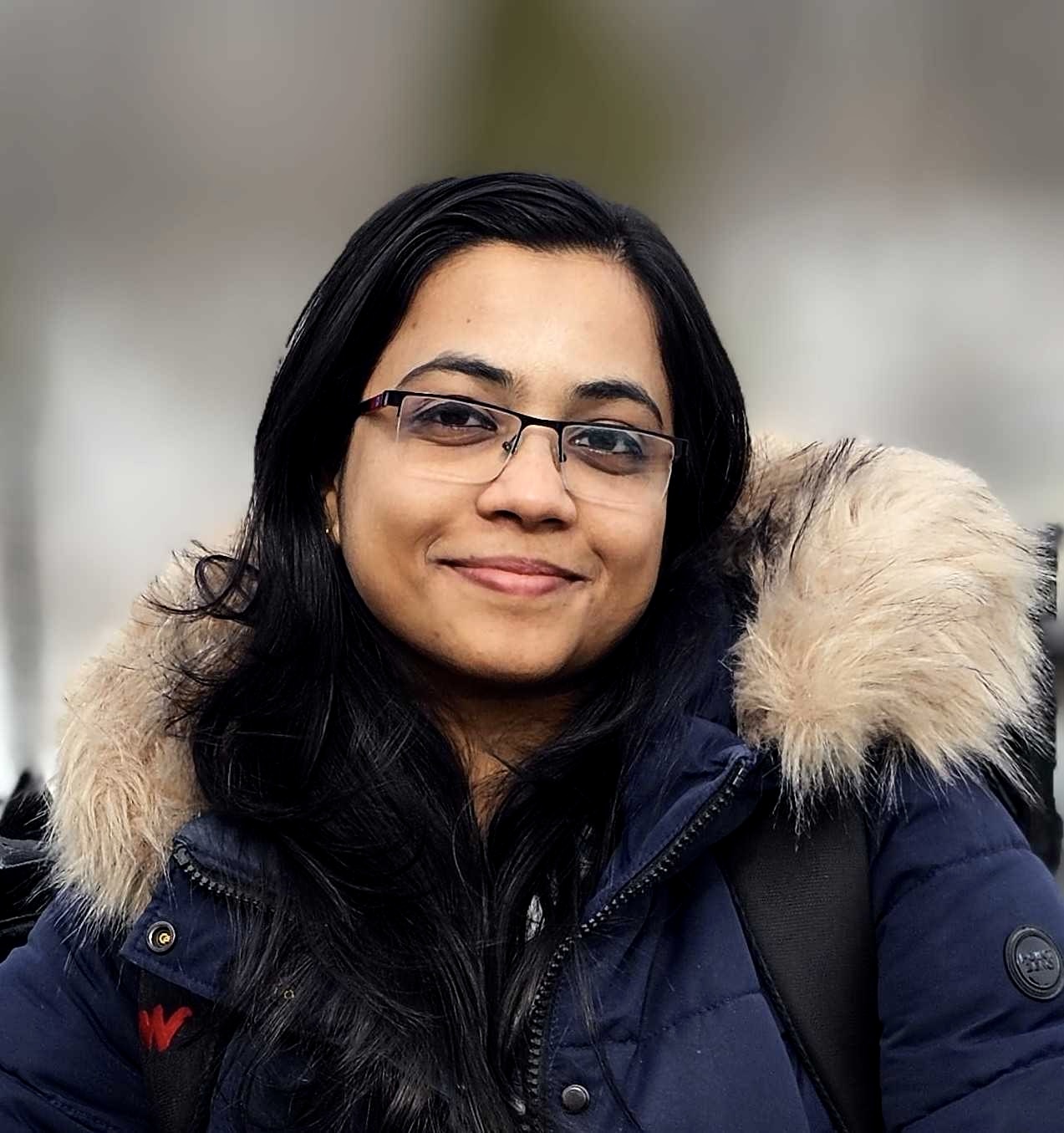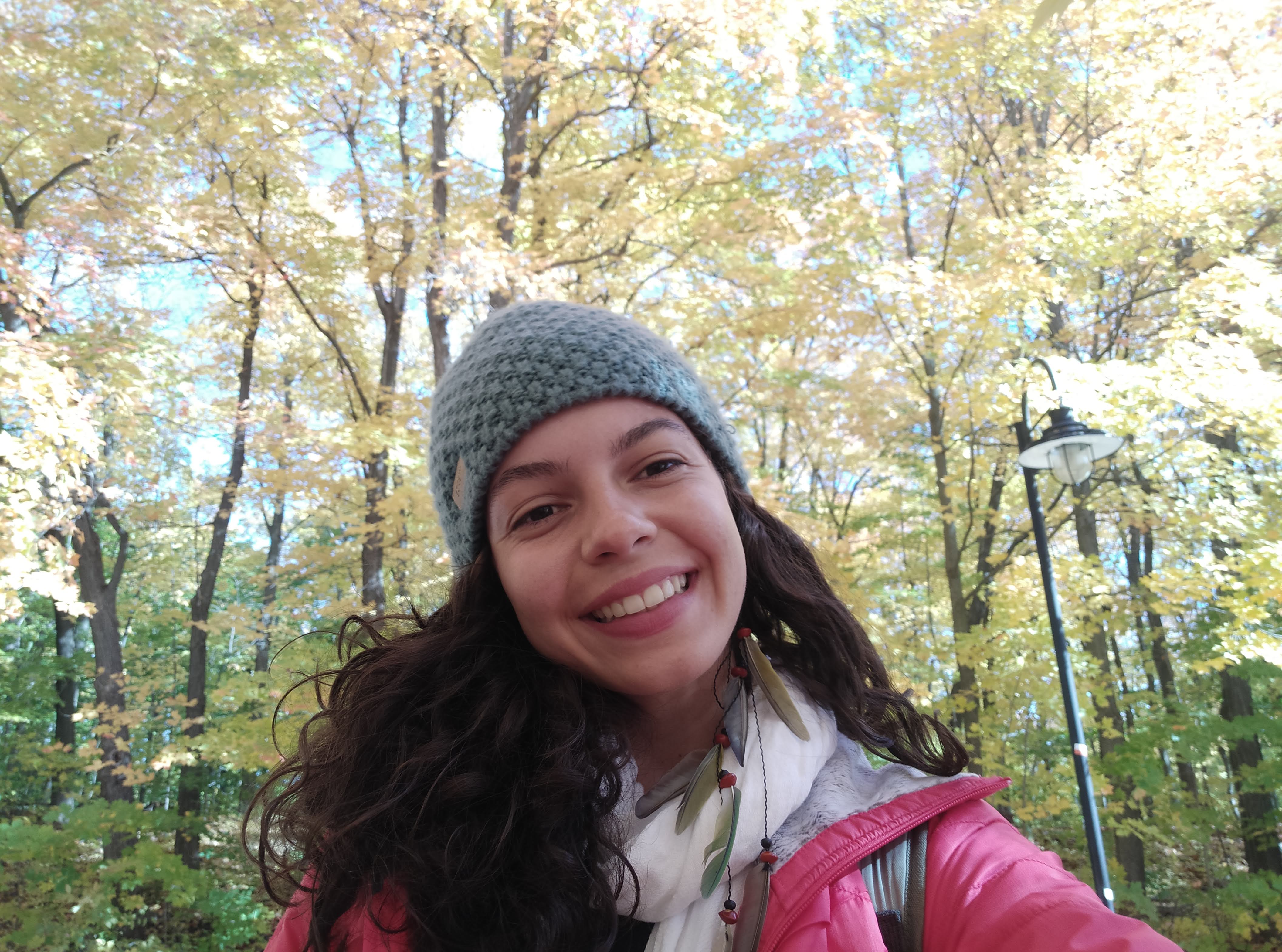The INRS Foundation is proud to announce the two new recipients of the Rio Tinto Scholarships for Diversity in Science at INRS: Lakshmi Anil and Maria Luisa Moreira dos Santos. These scholarships are designed to encourage the perseverance and outstanding career achievements of members of the student community from under-represented groups in scientific research, particularly in the fields of sustainable development. This philanthropic partnership reflects the commitment of INRS and Rio Tinto to equity, diversity and inclusion in our research communities.
Discover our new winners:
Lakshmi Anil, PhD student in energy and materials sciences, under the supervision of Professor Kulbir Kaur Ghuman

“Receiving the Rio Tinto Scholarship is an important milestone that recognizes both my academic endeavors and my personal journey, marked by resilience, ambition and passion for science.”
- What brought you to INRS? What do you retain from your experience?
I was attracted to INRS because of its emphasis on applied research and interdisciplinary collaboration, particularly in the fields of energy and materials science. The innovative work of my supervisor, Professor Kulbir Kaur Ghuman, and her expertise in computational materials science played a key role in my decision. INRS offered me a supportive and inclusive environment in which I could develop as a researcher and contribute to projects of global environmental importance. This experience was both stimulating and transformative, strengthening my scientific skills and my confidence as a woman in STEM. - Describe the challenge and impact of your research project.
My research focuses on the design of metal-based materials for the direct capture of CO₂ using advanced computational techniques; a highly urgent priority in the fight against climate change. One of the main challenges is the lack of materials capable of efficiently adsorbing and desorbing CO₂ under varying conditions for the direct capture of CO₂ from air, which limits the scalability and efficiency of current technologies. I have obtained promising results with copper surfaces and am currently exploring other metals to which electric fields are applied. The results of this work could contribute to the development of scalable, cost-effective solutions for reducing CO₂ levels in the atmosphere. - What does winning this scholarship mean to you?
Receiving the Rio Tinto Scholarship is an important milestone that recognizes both my academic endeavors and my personal journey, marked by resilience, ambition and passion for science. This recognition reinforces my commitment to advancing sustainable technologies and inspires me to support and mentor other young women and students from underrepresented STEM backgrounds. - How do you see the future?
I plan to finish my PhD by developing efficient materials for CO₂ capture and publishing high-impact research that will help find solutions to the global climate problem. I also plan to collaborate with researchers to help translate computational results into real-world applications. In the long term, I want to contribute to cutting-edge research on direct air capture (DAC) technologies and take on leadership roles that drive innovation in climate-focused materials science.
Maria Luisa Moreira dos Santos, PhD student in Earth Sciences, under the supervision of Professor Geneviève Bordeleau

"I'm the first woman to access post-secondary education at home, and this achievement resonates far beyond the walls of the university. It's an encouragement for a young researcher committed to an emerging field."
- What brought you to INRS? What do you retain from your experience?
My passion for the geosciences and my desire to contribute to the fight against climate change through research into emerging energy resources led me to INRS. When I discovered Professor Geneviève Bordeleau's proposed research project, combining fundamental geology and current energy issues, I knew it was an opportunity that matched my objectives. I was also keen to gain an international academic experience and develop new skills, particularly linguistic and intercultural ones. Learning that INRS stands out for its excellence, the intensity of its research and its openness to international students reinforced my conviction that this environment would foster my development, both scientific and personal. I found a stimulating research environment, at the intersection of scientific innovation and concrete environmental issues. What I remember most is the quality of the supervision, the interdisciplinary approach and the collaboration between researchers, all of which enrich and support the progress of my work. - Describe the challenge and impact of your research project.
I'm working on a little-explored but promising subject: natural hydrogen. My aim is to better understand the natural sources of this gas, by carrying out field studies on this resource in Quebec to document its presence, and to develop tools to facilitate its exploration. In a context of urgent energy transition, identifying clean, naturally available hydrogen resources could transform our future energy prospects. This project lies at the crossroads of geosciences research, the environment and sustainable development, with the hope of opening up new avenues towards a new source of low-carbon energy. - What does winning this scholarship mean to you?
Receiving the Rio Tinto Scholarship for Diversity in Science is a great honour, not only academically, but also personally. It's a precious support and a motivating recognition of the value of my project, which allows me to focus more on my research. It also means a great deal to my family. I'm the first woman in my home country to achieve a post-secondary education, and this achievement resonates far beyond the walls of the university. It's an encouragement for a young researcher in an emerging field. - How do you see the future?
I wish to pursue my doctoral career with excellence and commitment, taking full advantage of resources, collaborations and partnerships, whether academic, private or international, to enrich my project. My aim is to produce high-quality research that can make a tangible contribution to the advancement of knowledge in the emerging field of natural hydrogen. In the longer term, I would like to continue exploring sustainable solutions for geological resources within the geosciences, while contributing to a positive environmental impact in line with the global challenge of combating climate change.
The competition, open from October to December 2024, was managed by the INRS Service des études supérieures et de la réussite étudiante (SESRE) team, to whom we extend our warmest thanks, as well as to the members of the selection committee and the members of the student community who applied.
About the Rio Tinto Scholarships for Diversity in Science
The Rio Tinto Scholarships for Diversity in Science at INRS aim to promote the representation of a diverse range of students in the sciences. More specifically, they support women, people from sexual or gender minorities, people with disabilities, aboriginal people, people from racialized or ethnic minorities and neurodivergent people in the next generation of scientists trained at the Institut national de la recherche scientifique (INRS) to tackle the various issues affecting the environment and sustainable development.
They are made possible by a generous donation from Rio Tinto. For the second year, two $15,000 scholarships are being offered to improve the circumstances of the winners.

.png)